Recent Blog Posts
Was Negligence a Factor in Your Slip and Fall Accident?
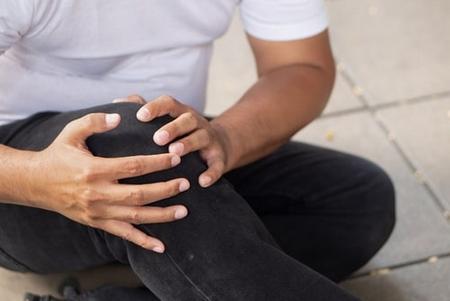 Whether you are walking through a mall, a doctor’s office, or your place of work, no one expects to slip and fall, nor is anyone prepared for the consequences of this type of accident. If you have sustained severe injuries due to an accident you suffered on someone else’s property, it is important to work with an experienced attorney who can help determine what compensation you may be entitled to and hold the responsible parties accountable.
Whether you are walking through a mall, a doctor’s office, or your place of work, no one expects to slip and fall, nor is anyone prepared for the consequences of this type of accident. If you have sustained severe injuries due to an accident you suffered on someone else’s property, it is important to work with an experienced attorney who can help determine what compensation you may be entitled to and hold the responsible parties accountable.
What Causes a Slip and Fall Accident?
There are numerous factors that can lead to employees and patrons suffering a slip and fall on a business’s property, including the property manager’s negligence in properly maintaining walkways, roads, floors, and parking lots. Property owners and managers also need to be mindful of areas such as stairs, escalators, and elevators. When property owners or managers fail to adequately monitor these areas for cleanliness and safety, they may be unaware of slick surfaces or obstructed walkways.
Tips For Reacting to an Officer’s DUI Suspicions
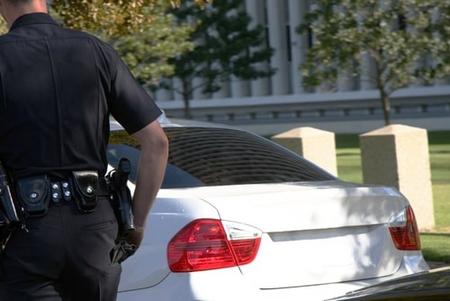 In general, getting pulled over can cause a great deal of tension and anxiety. It is not uncommon for drivers in these situations to be nervous and make mistakes or say the wrong thing as a result. Getting pulled over under suspicion of driving under the influence (DUI) should be taken very seriously, and drivers should be prepared for what is expected of them and how best to handle the situation. Even if you act with the utmost respect and rationale, you could face serious consequences, and it is in your best interest to connect with a lawyer who can approach your DUI defense vigorously.
In general, getting pulled over can cause a great deal of tension and anxiety. It is not uncommon for drivers in these situations to be nervous and make mistakes or say the wrong thing as a result. Getting pulled over under suspicion of driving under the influence (DUI) should be taken very seriously, and drivers should be prepared for what is expected of them and how best to handle the situation. Even if you act with the utmost respect and rationale, you could face serious consequences, and it is in your best interest to connect with a lawyer who can approach your DUI defense vigorously.
What Should I Do If I am Pulled Over For DUI?
If you believe you are being pulled over due to an officer’s suspicion that you are driving under the influence, you should first and foremost find a safe place to pull over. Because the officer already suspects you of DUI, they are going to be hypervigilant of your behavior. Therefore, any odd or erratic behavior will only bolster their suspicion. On a similar note, it is important for drivers to understand that officers are trained to protect themselves and be incredibly cautious. Thus, it is essential that drivers do not make any sudden movements once parked.
Understanding the Deadlines for a Workers’ Compensation Claim
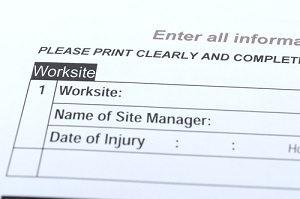 Employees who sustain on-the-job injuries may suffer short-term and long-term effects. In some cases, it is possible for these injuries to affect individuals for the rest of their lives. When a work-related injury causes life-changing damage, whether that be physically, emotionally, financially, or all of the above, the employee can pursue a workers’ compensation claim through their employer. A skilled attorney can assist injured employees in recovering maximum benefits to help the victim adequately recover and protect their legal rights.
Employees who sustain on-the-job injuries may suffer short-term and long-term effects. In some cases, it is possible for these injuries to affect individuals for the rest of their lives. When a work-related injury causes life-changing damage, whether that be physically, emotionally, financially, or all of the above, the employee can pursue a workers’ compensation claim through their employer. A skilled attorney can assist injured employees in recovering maximum benefits to help the victim adequately recover and protect their legal rights.
Common Injuries Associated With Workers’ Compensation
When employees suffer injury, illness, disease or other harm from their job or workplace environment, it may be an option for them to pursue a workers’ compensation claim. There are several commonly seen causes of non-fatal job-related injuries, some of which include slip and falls, vehicle collisions, exposure to harmful substances, and workplace violence.
Were Your Injuries Caused By Improper Truck Maintenance?
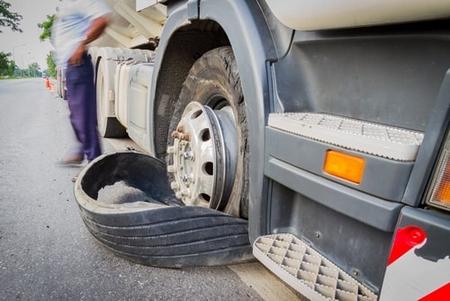 Though passenger cars and semi-trucks differ substantially in weight, driver field of vision, and stopping distance, they are still expected to safely share the road every day. Unfortunately, when these two contrasting vehicles collide, the crash can lead to devastating outcomes. Oftentimes, truck wrecks are preventable and are the result of negligence. If you or a loved one has suffered serious injury or death due to the negligence of a truck driver, the truck company, or other involved parties, a personal injury attorney can help you hold them accountable.
Though passenger cars and semi-trucks differ substantially in weight, driver field of vision, and stopping distance, they are still expected to safely share the road every day. Unfortunately, when these two contrasting vehicles collide, the crash can lead to devastating outcomes. Oftentimes, truck wrecks are preventable and are the result of negligence. If you or a loved one has suffered serious injury or death due to the negligence of a truck driver, the truck company, or other involved parties, a personal injury attorney can help you hold them accountable.
Inadequate Maintenance Can Lead to Large Truck Accidents
Commercial trucking accidents are not only caused by the actions or inactions of the driver while they are on the road. In some cases, these accidents are the result of the driver, the trucking company, and other individuals failing to complete proper inspections and repairs to the truck in a timely manner. Even if the trucking company properly inspects and cares for their vehicles, a truck may still have been manufactured with defective brakes, lights, tires, or other parts.
Essential Stages of an Illinois Criminal Trial
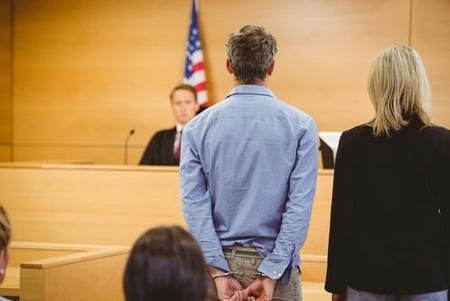 When considering what to expect in a criminal trial, the average person likely thinks of the court proceedings they have seen in movies or television shows. While that may provide the most basic understanding of a trial, there are many smaller pieces that often get left out. This blog will briefly go over each step of the trial process that a criminal defendant can expect. It is important to note that there are many ways a trial may veer from this path, but if you are facing a criminal trial, it is highly recommended that you find a criminal defense attorney who can help prepare you for the following stages.
When considering what to expect in a criminal trial, the average person likely thinks of the court proceedings they have seen in movies or television shows. While that may provide the most basic understanding of a trial, there are many smaller pieces that often get left out. This blog will briefly go over each step of the trial process that a criminal defendant can expect. It is important to note that there are many ways a trial may veer from this path, but if you are facing a criminal trial, it is highly recommended that you find a criminal defense attorney who can help prepare you for the following stages.
Jury Selection
In the United States, criminal defendants have the right to be tried by an impartial jury. The court and attorneys have the responsibility to appropriately and thoroughly examine the jurors prior to trial. The examination is meant to remove any jurors who demonstrate any bias, opinion, or prejudice that could impact their decision-making ability in regard to the crime at hand.
What Should Underage Drivers Know About the Illinois Zero Tolerance Law?
 Drunk driving can lead to very dangerous situations, and Illinois has laws in place to curb drunk driving as much as possible. The rules regarding DUIs for underaged drivers are especially strict, and it is important to be aware of the possible consequences if an officer has probable cause to suspect you have been drinking. Even if you are below the legal limit for the typical DUI requirements, you may still face severe punishments as an underage driver.
Drunk driving can lead to very dangerous situations, and Illinois has laws in place to curb drunk driving as much as possible. The rules regarding DUIs for underaged drivers are especially strict, and it is important to be aware of the possible consequences if an officer has probable cause to suspect you have been drinking. Even if you are below the legal limit for the typical DUI requirements, you may still face severe punishments as an underage driver.
The Illinois Zero Tolerance Law
Unfortunately, many alcohol-related car accidents involve underage drivers, and Illinois has implemented a Zero Tolerance Law in an effort to minimize the risk. The Zero Tolerance Law states that a driver under the age of 21 who is caught with any trace of alcohol in their system can have their driver’s license suspended. If the officer has probable cause to suspect the driver has consumed alcohol, the law requires the underage driver to consent to chemical testing. If the driver is found to have a BAC of more than 0.00, their license will be suspended for three months for a first offense. If an underage driver refuses to be tested, their driving privileges will be suspended for six months for a first offense.
Thinking of Using a Fake COVID-19 Vaccine Card? You Could Face Federal Charges if Caught
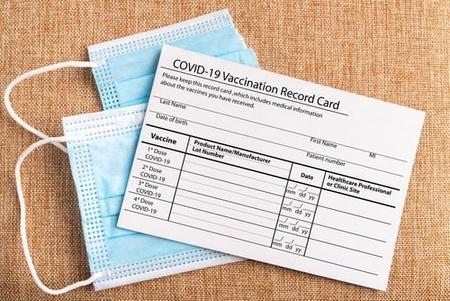 The COVID-19 pandemic not only changed the way Americans live their lives, but it also created many opportunities for committing fraud. Many of these schemes involved the Paycheck Protection Program (PPP), Economic Injury Disaster Loan (EIDL) program, and Unemployment Insurance (UI) programs. The United States Department of Justice (DOJ) has charged hundreds of defendants with crimes that were based on these schemes.
The COVID-19 pandemic not only changed the way Americans live their lives, but it also created many opportunities for committing fraud. Many of these schemes involved the Paycheck Protection Program (PPP), Economic Injury Disaster Loan (EIDL) program, and Unemployment Insurance (UI) programs. The United States Department of Justice (DOJ) has charged hundreds of defendants with crimes that were based on these schemes.
The FBI recently announced a new fraudulent scheme they are cracking down on - counterfeit COVID-19 vaccine cards. The agency has also declared that anyone who is charged and convicted of this crime faces harsh penalties. And as we approach the weekend of Chicago’s annual four-day Lollapalooza music festival, Illinois lawmakers are also warning people that it is not only illegal to make counterfeit COVID-19 vaccine cards, but also to use them.
Illinois Eliminates Cash Bail
 Illinois has become the first state in the country to eliminate cash bail for defendants who are arrested for a crime under the Illinois Pretrial Fairness Act, which was part of the state’s larger criminal justice reform bill. The new law is being lauded by defendant advocacy groups, who say that cash bail requirements penalize poorer defendants but benefit wealthy ones. Law enforcement officials have been vocal in their stance against the act, saying that it will ultimately put the general public at risk because of criminals being allowed to remain free pending trial.
Illinois has become the first state in the country to eliminate cash bail for defendants who are arrested for a crime under the Illinois Pretrial Fairness Act, which was part of the state’s larger criminal justice reform bill. The new law is being lauded by defendant advocacy groups, who say that cash bail requirements penalize poorer defendants but benefit wealthy ones. Law enforcement officials have been vocal in their stance against the act, saying that it will ultimately put the general public at risk because of criminals being allowed to remain free pending trial.
Illinois Cash Bail System
When a person is arrested and charged with a crime, a judge determines how much bail a defendant will need to post in order to be released while awaiting trial. In Illinois, the current system is a cash bail system. This means that the defendant is required to pay a certain percentage of the amount of bail the judge sets in order to be released. In most cases in Illinois, the bond amount that needs to be posted is usually 10 percent of the bail amount the judge set. For example, if the judge sets bail at $10,000, the defendant would have to post $1,000 cash to be released.
Chicago Announces Rewards for Illegal Gun Tips
 Gun violence in the city of Chicago has reached almost epidemic proportions. The issue is not only well known throughout Illinois but continues to consistently appear in national headlines, as well. Last year, Chicago had more than 3,200 shootings, a 50 percent increase from the previous year. Homicides also increased by 50 percent from 2019. And while there has been a slight decrease so far this year, the numbers of shootings are still high.
Gun violence in the city of Chicago has reached almost epidemic proportions. The issue is not only well known throughout Illinois but continues to consistently appear in national headlines, as well. Last year, Chicago had more than 3,200 shootings, a 50 percent increase from the previous year. Homicides also increased by 50 percent from 2019. And while there has been a slight decrease so far this year, the numbers of shootings are still high.
Chicago Mayor Announces New Gun Program
So far in 2021, Chicago police have confiscated more than 6,300 illegal firearms and anticipate that they will collect more than 12,000 illegal guns by the end of the year, even more than last year’s record-breaker of 11,000 seizures. In an effort to combat these numbers, Chicago mayor Lori Lightfoot has announced a $1 million rewards program to get illegal guns off the street. In her announcement of the program, the mayor said the number of illegal guns seized in Chicago is more than double the illegal firearms confiscated in both L.A. and New York City combined.
Illinois Revenge Porn Laws: How an Irrational or Impulsive Act Could Result in a Felony Charge
 Years ago, when a person wanted to take a photo, they needed to have a camera with film. They then had to take or send that film somewhere to be developed into hard copy prints. Today, smartphones, electronic devices, social media, text messaging, and emails have all changed the way we take and share photos. This also includes photos and videos that could be considered “racy” or inappropriate for public viewing. This has led to materials that were meant to be private shared without the subject’s permission by another party whose intention is to cause harm. This has become such a problem that it has resulted in many states, including Illinois, to pass revenge porn laws.
Years ago, when a person wanted to take a photo, they needed to have a camera with film. They then had to take or send that film somewhere to be developed into hard copy prints. Today, smartphones, electronic devices, social media, text messaging, and emails have all changed the way we take and share photos. This also includes photos and videos that could be considered “racy” or inappropriate for public viewing. This has led to materials that were meant to be private shared without the subject’s permission by another party whose intention is to cause harm. This has become such a problem that it has resulted in many states, including Illinois, to pass revenge porn laws.
Revenge Porn
Revenge porn is a type of digital abuse where one party distributes intimate material of another party without their consent. It often occurs between couples who break up – hence the “revenge” description – but can also be involved in blackmail attempts.
 815-727-0100
815-727-0100













